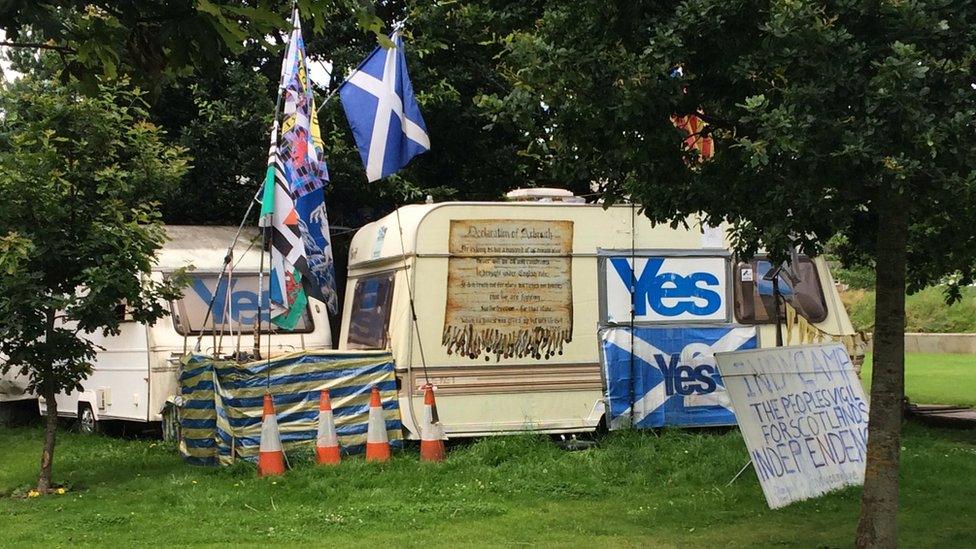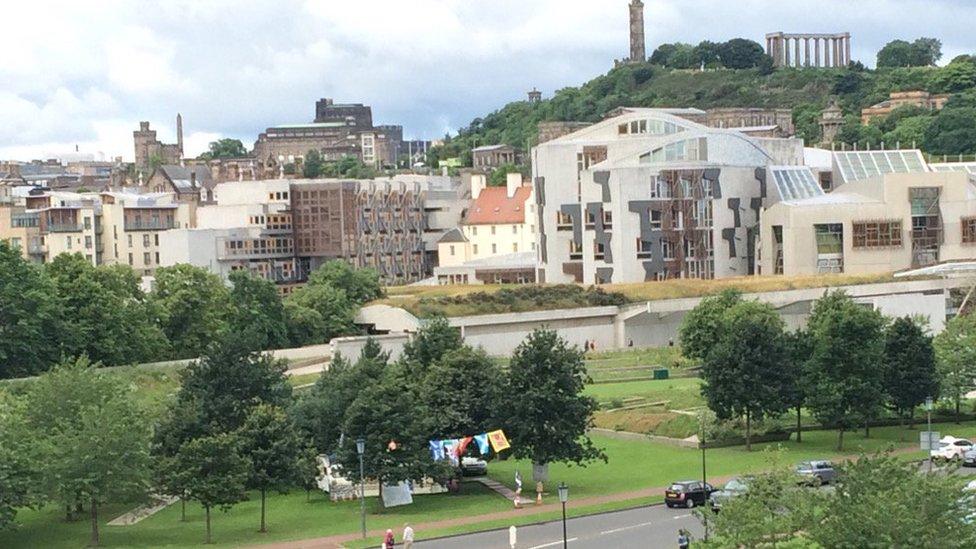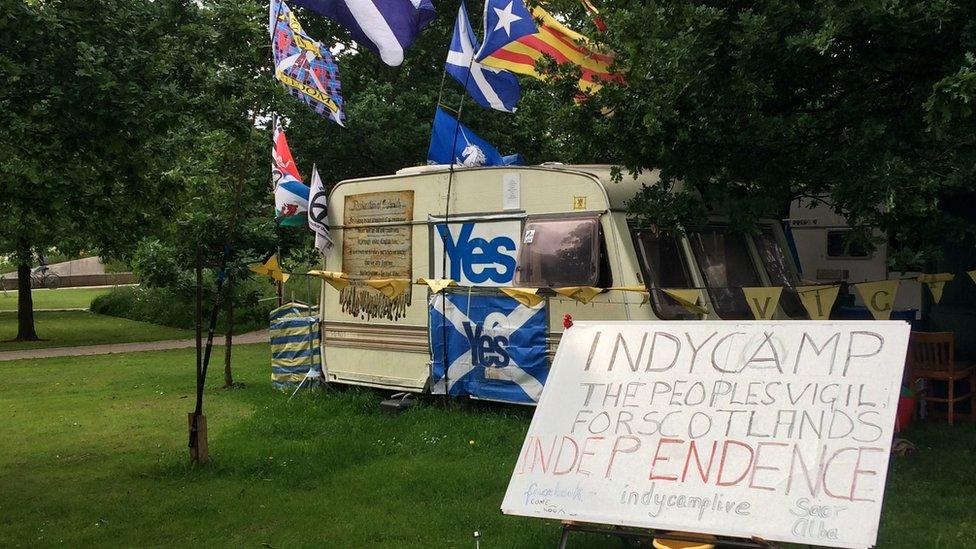Date set for IndyCamp appeal against Holyrood eviction
- Published

The campers have launched an appeal against their eviction from Holyrood
Appeals against the decision to evict independence campaigners from outside the Scottish Parliament will be heard at the Court of Session in October.
Lord Turnbull ruled that the IndyCamp group should be evicted from their Holyrood camp after a lengthy case.
Four different groups have lodged appeals against the ruling, making a range of arguments against eviction.
The inner house will consider the case on 19 and 20 October after Lord Malcolm accepted calls to fast-track it.
The court ruled against the campers in July after a seven-month legal battle, when Lord Turnbull concluded, external that evicting the IndyCamp would not breach their human rights.
He criticised the campaigners, who want to remain outside Holyrood until Scotland is independent, as "rather selfish or even arrogant" for seeking long-term occupation of the site, saying they had shown "open disregard" for others.
The campers maintain they have a right to protest and freedom of assembly at Holyrood, and appealed against Lord Turnbull's judgement.
Parliament chief executive Sir Paul Grice pushed for an accelerated appeal process, but warned MSPs that the "intransigence" of those occupying the camp could see the stand-off continue for some time.

The group have been ordered to quit the camp, which sits outside the Scottish Parliament
The campers, who originally styled themselves as the "sovereign and indigenous peoples of Scotland", have split into a number of different groups for the appeal.
Four different arguments will be heard at the October sitting.
Arthur Gemmell, who was a second respondent in the original case, said that his arguments had "affected Lord Turnbull's decision on the vigil" negatively, and said he wanted his case heard separately.
Some of the campers earlier issued a written letter distancing themselves from the views of another respondent, Richard McFarlane, who had claimed in court that Christ had returned to earth and had given permission to the camp to use the parliamentary estate. He will also make a separate case on behalf of himself and another respondent.
Two of the campers continue to style themselves as the "sovereign and indigenous peoples". One of them, who asked to be referred to in court only as "David", demanded that a jury sit on the case, as he claimed that "a trial by the state is illegal" and that the court "might be inept or corrupt".
The remaining four respondents will make a fourth case, and have stated their intention to appoint a Mr Keatings as a lay representative.
Lord Malcolm, who declined a call from David to recuse himself from the case as well as rejecting bringing in a jury, said the court would consider all four arguments at a two-day hearing in October.
- Published23 August 2016

- Published27 July 2016

- Published29 June 2016
